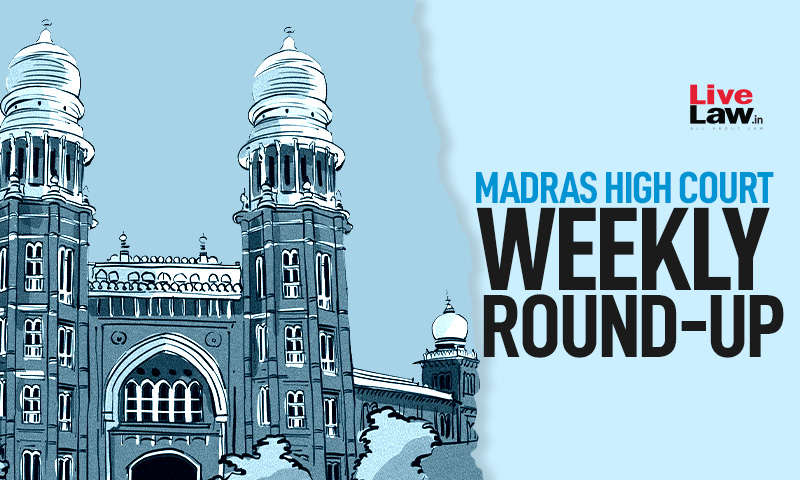Next Story
10 April 2022 7:24 PM IST
A weekly round-up of important cases from Madras High Court and its subordinate courts. Citations: 2022 LiveLaw (Mad) 135 To 2022 LiveLaw (Mad) 146 NOMINAL INDEX M. Ramasamy v. State represented by its chief secretary and anr, 2022 LiveLaw (Mad) 135 G.Thirumurugan @ Theeran Thirumurugan v. Union of India and ors, 2022 LiveLaw (Mad) 136 V. Vasanthakumar v. The Union of...

